
What does Uber’s latest initiative in Kashmir mean to the flame owners in Srinagar
In the morning of November, a crisp, the dal lake gives the muted wine under the sun. The soft cadence of the shaped-shaped paddles cut through ice water, and the soft cadence of the Gondolier, and the folklore describes the folklore as Kahwa or saffron. The ornate boats are spreading with the ghats, with their flower cushions and hand-drawn flowers, where it is somewhat inherently permanently spread on the Pro, the residents know all very well: Uber.
This is probably, the most strange air of partnership and the benefit of the new era, the ancient trade of a fusion-gondolier is leaning towards the skill of algorithm. As Charan returned the life through the frosty styles, the Shikara now carries the visitors through the flexible depth of the region caught between the past and the future, between tourists’ booms and political isolation.
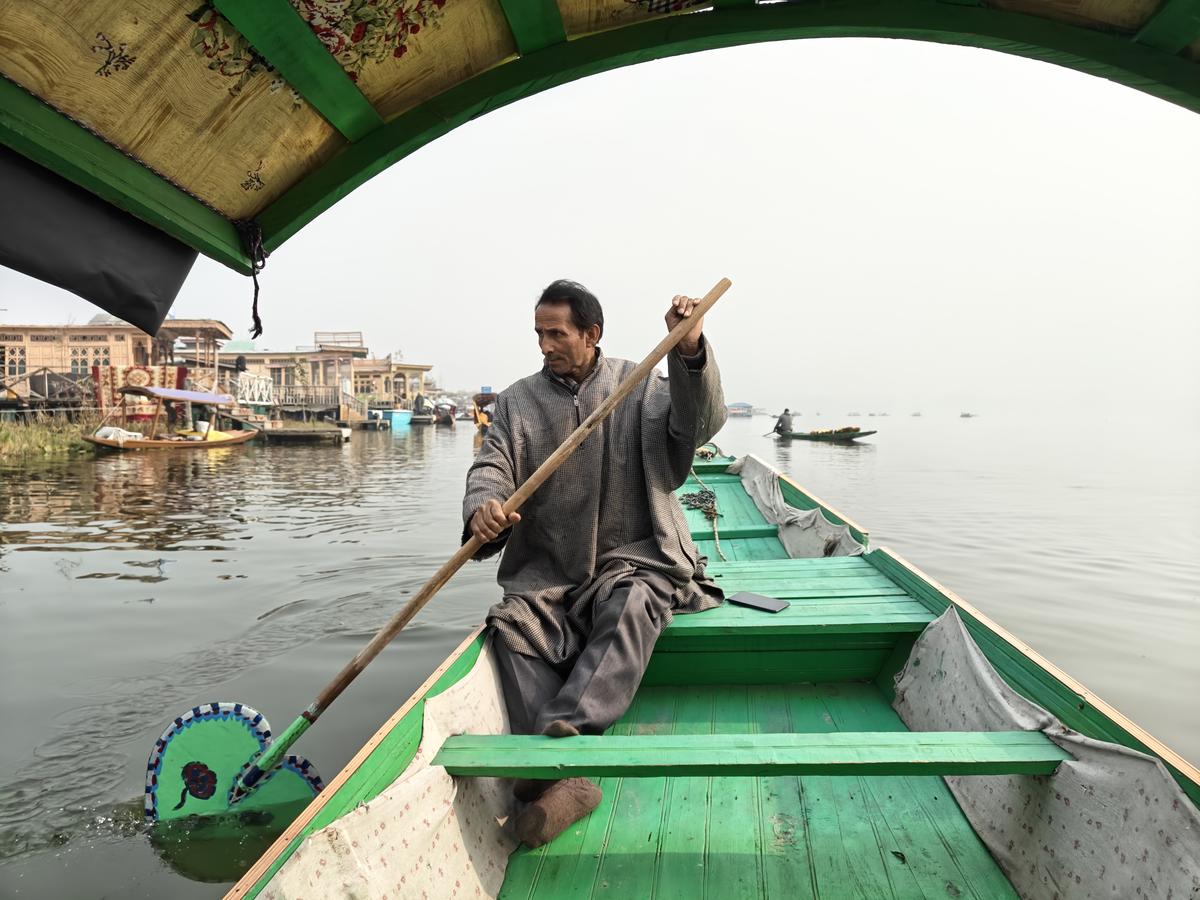
Paddlers, Kashmir, the owner of the flame Abdul Srinagar | Photo Credit: Ian Paul Chowdhury

As part of its expansion in the region, the ride-hilling giant entered the Kashmiri water, giving tourists the ability to book Shika Ride with some swipes. Born from Baten Uber and Shikara Union due to partnerships, this initiative is being created as a win-air: for tourists, the application is obvious. There is no hugling, no more guilt in buying extra price saffron or papier-mach trinkets. Only a simple, application-based transaction where the price is set, the root is clean and the Shikara operators have been tested by Uber. After a tough discussion, a Cluses Firangi can now spend a ride of $ 5,000 now that it can now book online for a fixed rate of 800 per hour.
Shikara, on the other hand, for operators, it provides an uncertain economic climate and forecast for elimination of mid-men. However, this move highlights the deepest tension in a place where the eye of the war is often seen injection with the meaning of injection among-technology-driven experts?
The wide lake is often called “Kashmir’s crown gem”, along with only one tourist hub. It itself feels like a microcosm in the region: the breath is beautiful, endless romantic and constantly contrasting.
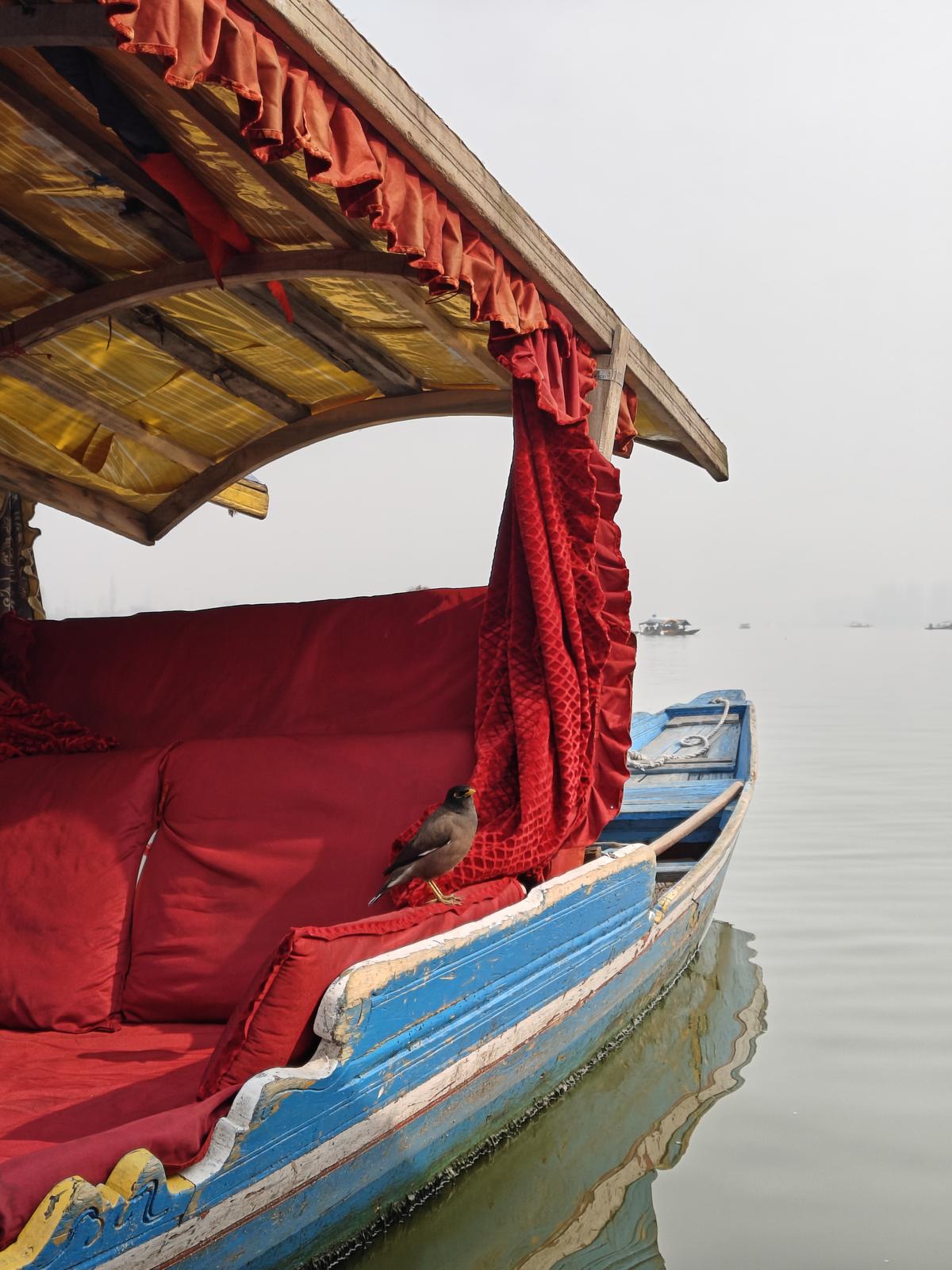
An curious passenger on a flame floating on Dal Lake in Srinagar, Kashmir. Photo Credit: Ian Paul Chowdhury

A decade ago, the Waters reflected a different reality – frequent shutdown, demonstrations and an isolated quiet were obstructed by the sound of the military cable simply. The special location of this region was rebuilt in 2019 under Article 370, and the promises of development and prosperity were hung in the air like an unconscious prayer. The checkpoints remain like soldiers today, but the narrative (somewhat) has moved. Tourism is becoming serious, and at the same time the progress of progress comes.
In most cases, the Uber Shikara service is a practical response to a Booming Tourism sector. The epidemic-induced lull moves towards the enthusiasm of domestic and international visitors, interested in gaining the experience of Fames Fames of Dal. However, with the logistic challenges to reduce this boom: a crowded groove, overbookd houses and hunting fleet.
There is no reason to deny that the Uber Shikara has made life easier for tourists, or it brings discipline to an industry that has long been in the mercy of his involuntary tourism. However, in such a region, it has been politically charged like Kashmir, even as a ride-sharing app, seemed as a symbol of the larger forces in some of the innocent games. Although the government has highlighted the record-breaking flow to Jammu and Kashmir as a sign of normal in 2021, locals propose and some percent.
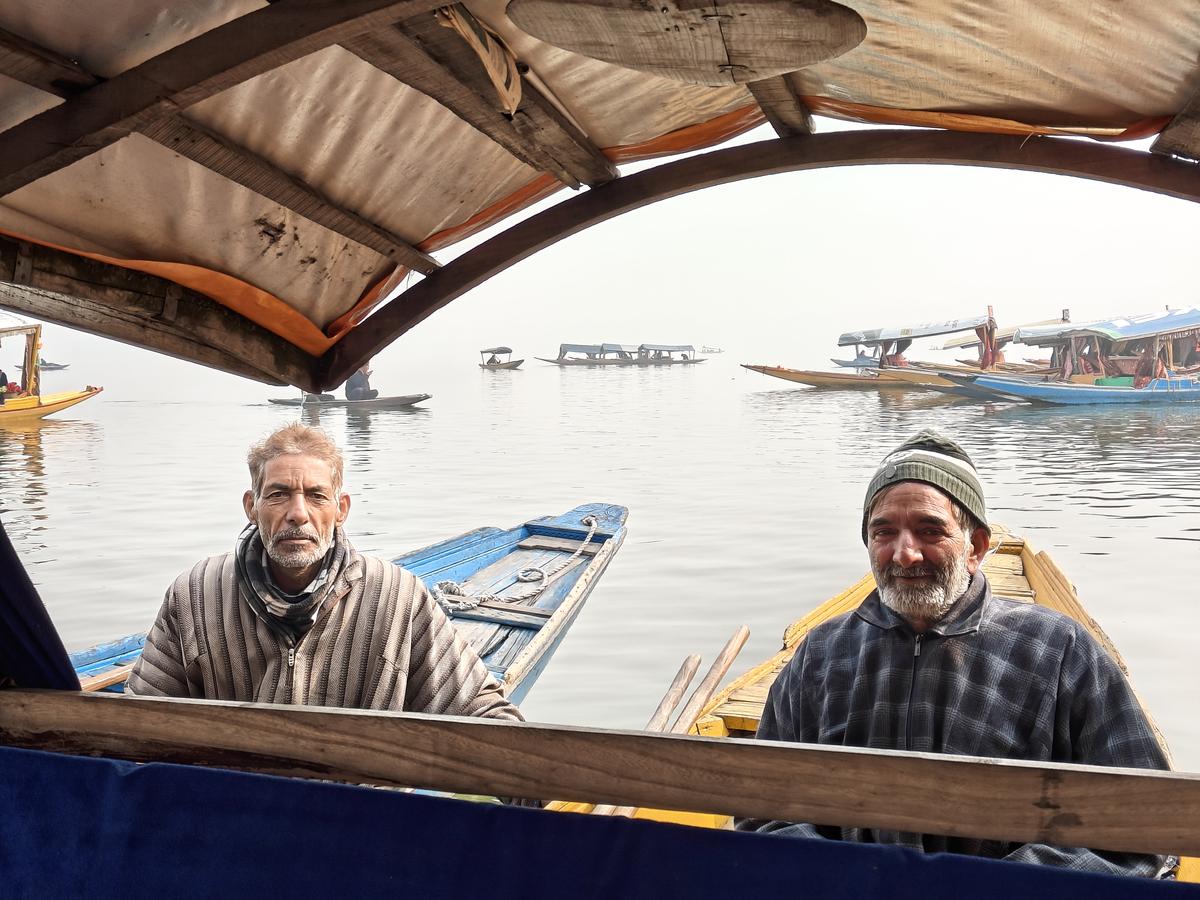
Abdul Ghani (Left) poses for a photo at Dal Lake in Srinagar, Kashmir. Photo Credit: Ian Paul Chowdhury

A whisper is concerned that the magic of the dal is in its crude chaos, and the risk risk of risk risk at risk of risk risk at risk of risk risk at risk of risk risk at risk at risk of Uber. “Alas, the old one is old, and the new one is new,” 50 -year -old Abdul Ghani says, a flame operator who has been padding these waters since the age of 16. Reminds the “Old of Kashmir” before commercialization but Sipa Sipa in every corner of life.
If there is a thing that units the locals of Kashmir, then it is their realism. Shikara operators, although welcomed by Uber, know that technology alone cannot solve their challenges. “This is good, but people need to be trained,” a young flame operator Mehraj says. “Many of them are not educated. They do not fully accept how big Uber or how it works. But if it brings business it is important.
The Uber’s No-Commission policy for the Shikara Rides is an unusually liberal step and it has obtained praise from the locals. Makes the service more transparent and accessible, it has become the playground for operators who have long been in the compassion of local power speed lock.
But what will be the tourists? Will they trade the spontaneous explosion charm for the convenience of pre-split journey? Now, the answer seems to be yes. The service is a primary look to see its use and the comfort of fairness.
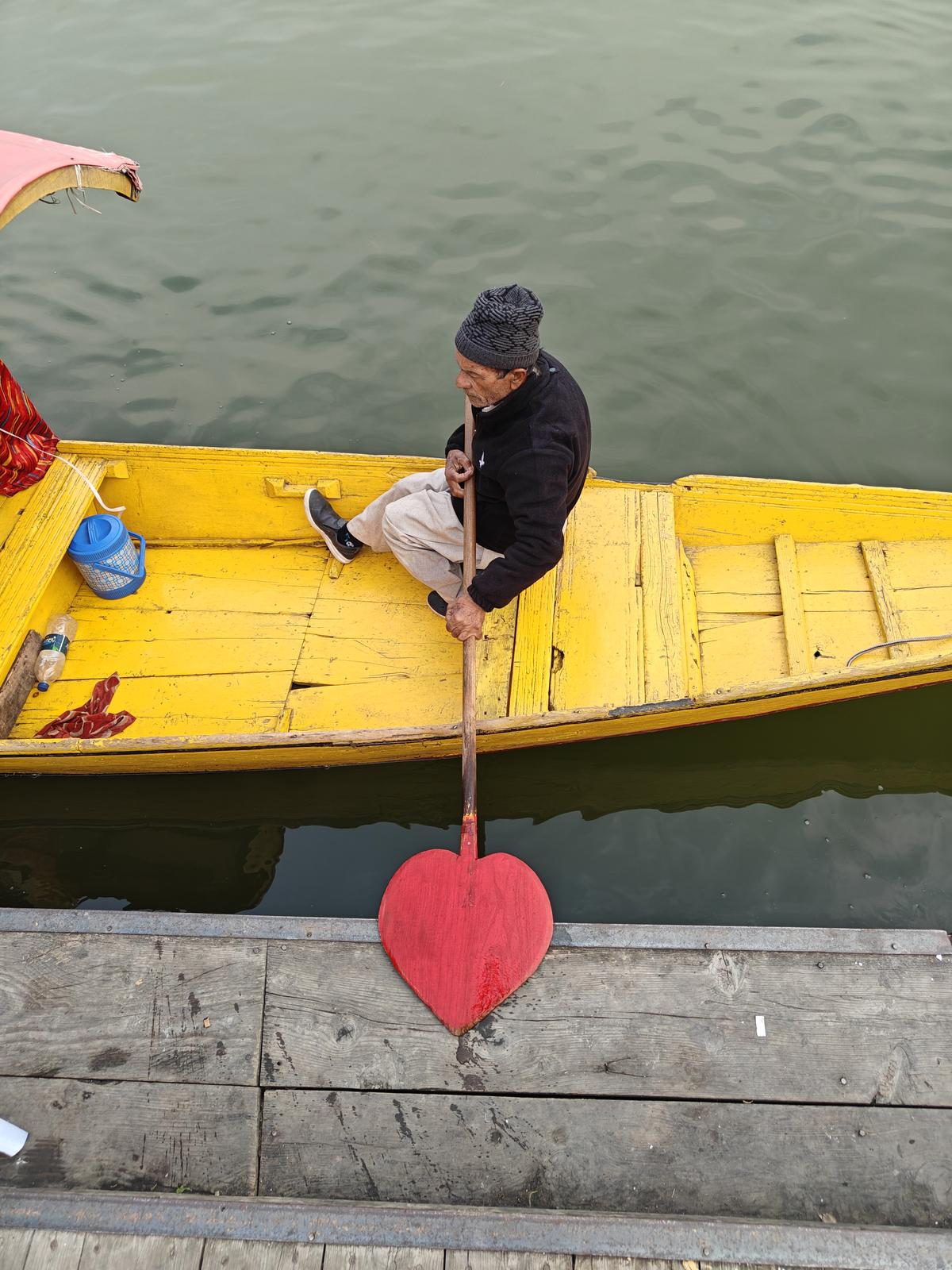
The owner of a flame has come out of the bank of Dal Lake in Srinagar, Kashni Photo Credit: Ian Paul Chowdhury

Mehraj’s more indicated observations, however, draw a complex portrait of life on the pulses. “The problem is that people are afraid of this place,” he says. “People used to talk to me not to Kashmir. It is dangerous. And it is a thinking of media descriptions and the by -the -generation by the armed forces. “We are not what you see in the title. When people come here they realize that it is a place of peace, not violence. They never saw people like Kashmiri anywhere else in the world.” He spoke of a Kashmir where these integral sensations and kindness are simply the ideal More, Rether, the quiet deeds of the Diffens against the sedar stereotypes that are drawn on the moodline.
The question that someone is not asking (at least not publicly) is that this new shine is risky of revival on unresolved tensions that define life in the valley. Is maintained through the boring of Kashmir’s “peace”
The more time you spend on the pulses, the Uber Shikara does not seem to define too much shift, but update anything there. Shikara bot floats as artifact and metaphor. Stade by wooden war or minimum to its destination
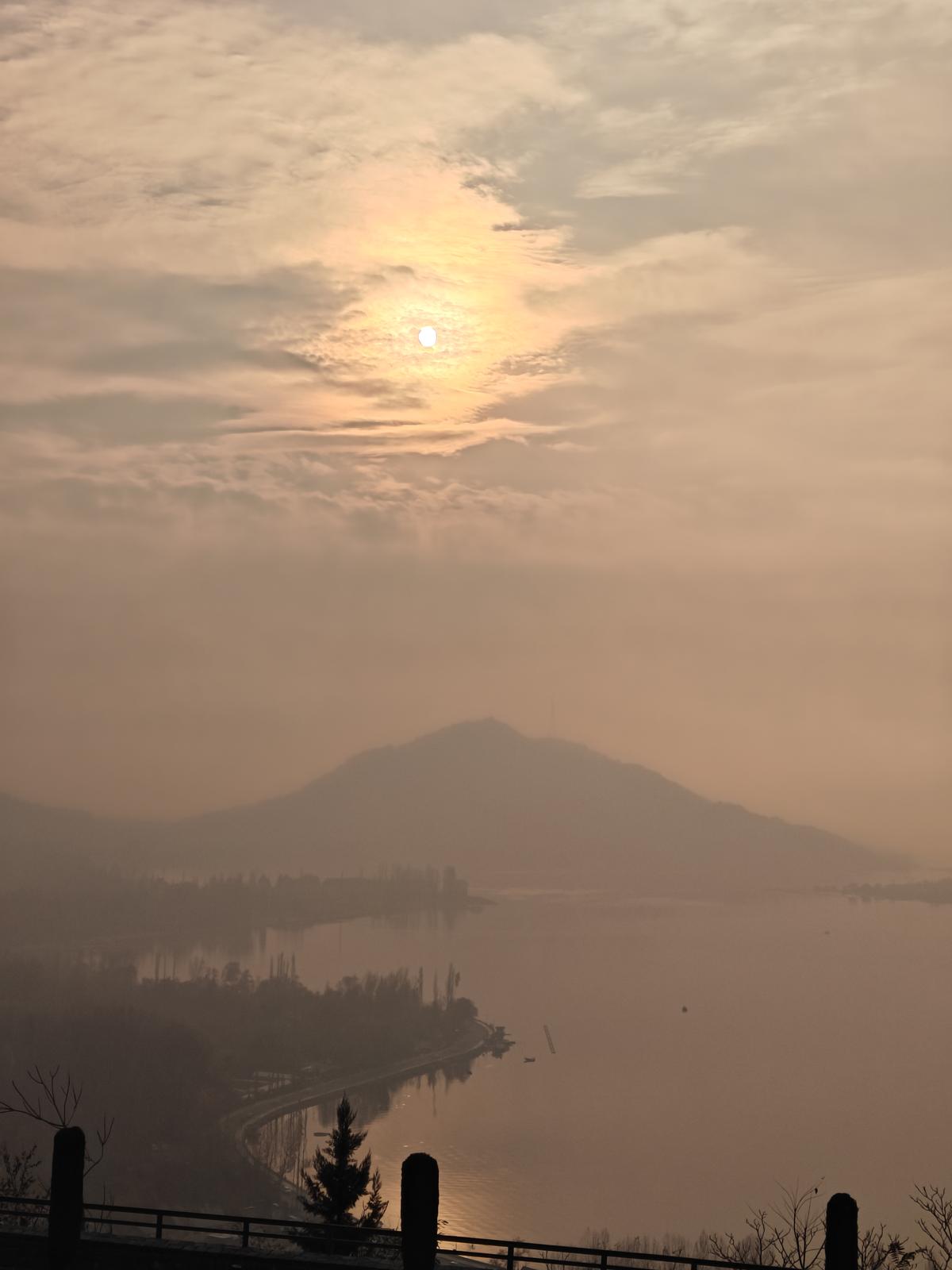
The sun passes over Dal Lake in Srinagar, Kashmir Photo Credit: Ian Paul Chowdhury

The water of the pulses reflects all of them: progress and pain, the tradition of the tradition and transformation, the endless interplay of the past and the future. Mehraj had earlier shared a proverb that saw the winds of these changes: “When sunlight hit one side of the tree, there is a shadow on the other. And when it is transferred, so shadow.”
My last evening of my brief inspection, the sun dipped behind the hill, gilding the waters in the oacha smoke, life continued. The victims rode, the tourists threw pictures and the soldiers kept an eye on. Here, everything changes, but nothing really does.
The author was in Srinagar on the invitation of Uber
Published – December 03, 2024 12:41 PM IST



